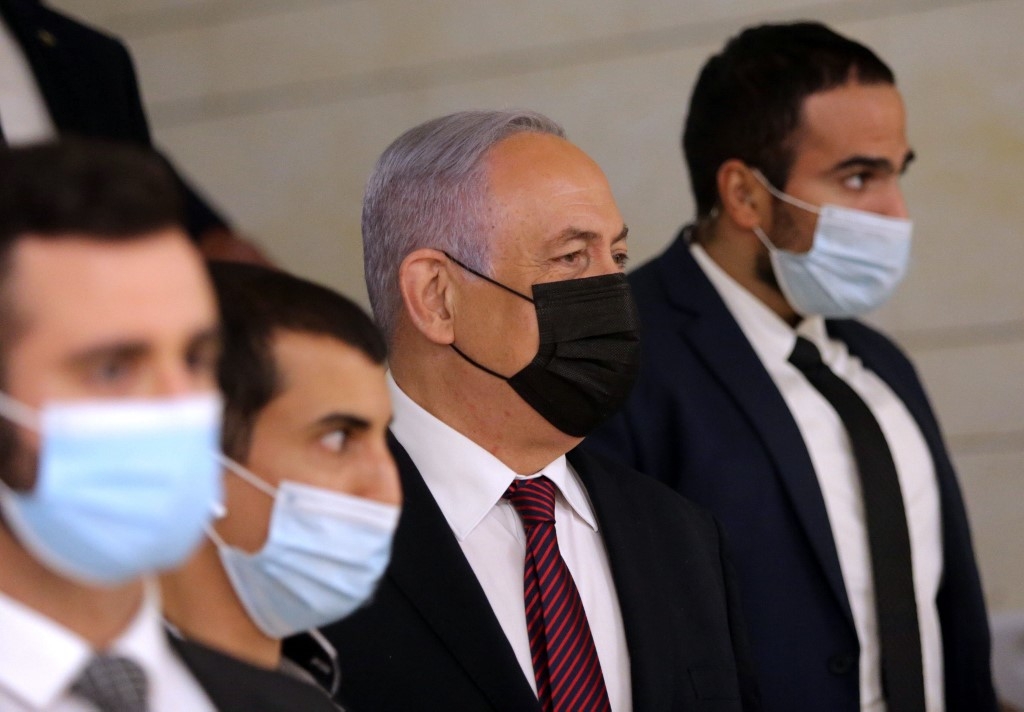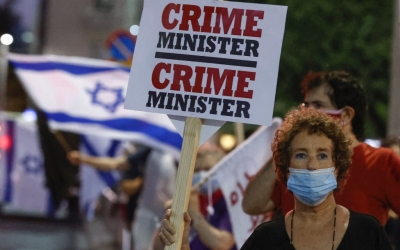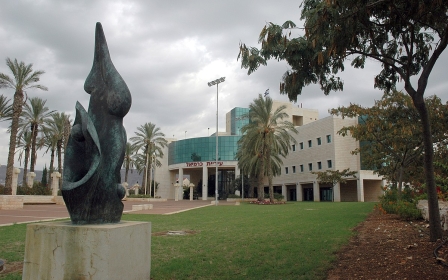Israel's Knesset passes first hurdle towards a fourth election

Israel is on the verge of heading into a fourth legislative election since April 2019, after a preliminary reading of a bill to dissolve the Knesset passed a first vote on Wednesday, with 61 votes in favour and 54 against.
If the bill fails to pass three more readings, MPs won't be able to submit a similar proposal for another six months unless approved by the speaker of the Knesset, Yariv Levin, who is a member of Prime Minister Benjamin Netanyahu’s Likud party.
But if it is passed, this will put Israel on the track for an election in March 2021.
The last time Israel went to the polls was in March 2020, and it took a political coalition between Netanyahu's Likud and current Defence Minister Benny Gantz's Blue and White party until April to agree on forming a national unity government, with plans on rotating the roles of the premier between Netanyahu and Gantz after 18 months, in November 2021.
Why a fourth election?
New MEE newsletter: Jerusalem Dispatch
Sign up to get the latest insights and analysis on Israel-Palestine, alongside Turkey Unpacked and other MEE newsletters
With the unity government already on rocky ground since its formation, Israel has reached a political standoff on a number of issues in recent weeks, one of them being the 2021 budget, reportedly amounting to 426bn shekels ($129.5bn), according to Reuters.
The budget is set to include 40 to 50 reforms to help the economy bounce back after being badly hit by two lockdowns and tight restrictions since March because of the Covid-19 pandemic.
Gantz had hoped to reach a deal with Netanyahu over the 2021 budget, but these hopes were dashed last week.
"Netanyahu committed to pass a budget in August, and naturally did not stand by his word. He promised that it would happen in December and is not following through. Does anyone believe him anymore?" Gantz said on Tuesday.
Tension between Netanyahu and Gantz worsened after Gantz announced that his party would endorse a dissolution of the Knesset and that he was setting up a government committee to explore the role of the premier's office in buying naval assets in a corruption case known as Case 3000 in which Netanyahu is embroiled.
Israel did not set a budget for 2020 due to the political strife, and has been operating under the same budget as 2019, which was approved in 2018.
Even if the dissolution bill fails, Israel could still go to a fourth election in March if the government does not approve the 2021 budget.
Who’s voting in favour?
Netanyahu’s Likud party has been opposed to dissolving the Knesset. The Likud has 36 seats and has forged a political alliance with ultra-Orthdox parties such as Shas, and United Torah Judaism, meaning Netanyahu's political bloc in the Knesset counts 59 seats - although seemingly not all MPs from this coalition have voted to oppose the bill.
Yesh Atid, which has 13 seats in the Knesset, was the one that put forth the bill on Wednesday.
"Israel needs a government that will work for the public. An efficient government that will focus on life itself, on the real problems of real people, on small businesses, on the unemployed, on healthcare," Yair Lapid, the head of the party, said on Tuesday. "Not a government focused on petty politics and corrupt deals and press conferences."
Lapid was referring to Netanyahu' corruption cases, which are widely believe to motivate the PM's efforts to stay in power. The Israeli premier is currently facing charges for which he could face a maximum sentence of 10 years in prison if found guilty. His trial is due to be hearing witnesses in January.
Lapid also confirmed that Gantz - whose Blue and White Party has 33 seats - would vote in favour of the bill, saying that he had called Gantz asking him “to put the past behind us," according to the Jerusalem Post. The left-leaning Labor-Gesher and Meretz parties, which have only three seats, were also expected to vote in favour with the bill.
The far-right Yamina party, which has six seats in the Knesset and is headed by Naftali Bennett, was expected to vote in favour of the bill, as it stands to benefit from a fourth election.
According to a poll by Channel 13, if an election goes ahead, Yamina could win 23 seats, while Likud would secure 27, meaning Netanyahu's bloc would shrink in size and lose its ability to politically manoeuvre inside the Knesset.
The Arab Joint List - an alliance of parties representing Palestinian citizens of Israel which has 15 seats - has meanwhile been divided on the issue. A rift took place within the coalition after one of its leaders, MP Mansour Abbas, who heads the Islamic Movement-Southern Branch in the Negev, endorsed Netanyahu in a Facebook post on Tuesday.
Abbas wrote that the Joint List would vote according to the interest of “our Arab community, not according to the ambition of the Zionist left, or Lapid, or Gantz, or Netanyahu or Naftali Bennett".
"What I have to do with the left?" Abbas added. "In foreign policy, I am there of course, and we support the two-state solution. But in religious matters, I'm right-wing. I have lots in common with Shas and United Torah Judaism, more so than with Meretz and Blue and White."
Middle East Eye delivers independent and unrivalled coverage and analysis of the Middle East, North Africa and beyond. To learn more about republishing this content and the associated fees, please fill out this form. More about MEE can be found here.





